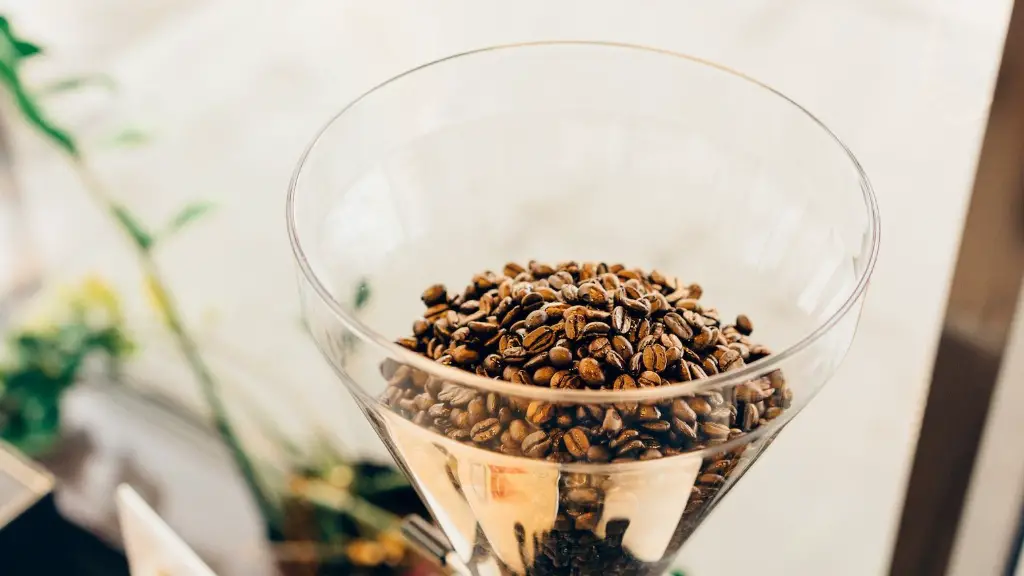Coffee is one of the most universally loved beverages, and it is consumed by people all over the world. But can coffee be consumed while a person is taking the common anticoagulant drug warfarin? The answer is that it depends on the individual’s condition, but generally speaking, it should not be consumed regularly while taking warfarin.
Before exploring the effects of combining coffee and warfarin, it is important to understand what warfarin is, and how it works. Warfarin is a medication used to thin the blood and reduce the risk of blood clots. It is often prescribed for patients who have suffered a stroke or heart attack, or for those who have atrial fibrillation, a type of heart rhythm disorder. Warfarin prevents the blood clots that can lead to serious medical issues, and it works by blocking the action of vitamin K in the body.
Although coffee is generally considered safe to consume, when it comes to warfarin, the results are somewhat mixed. The combination of warfarin and caffeine may increase the risk of excessive thinning of the blood, and this can result in an increased risk of bleeding. In addition, caffeine can affect the effectiveness of the drug, leading to a decreased ability to clot. Several studies have shown that patients taking warfarin who consumed more than three cups of coffee per day were more likely to suffer from breakthrough bleeding than those who consumed less than three cups per day.
It is also important to note that coffee can interact with other medications, including some antibiotics and antacids. Therefore, it is essential to consult a doctor before consuming coffee while taking warfarin. Additionally, patients should review all of the medications they are taking to ensure that coffee does not interact with any of them, as this could have an adverse impact on their health.
Overall, it is not recommended to consume coffee regularly while taking warfarin. However, the occasional cup of coffee is unlikely to have any negative effects. Patients should talk to their doctor about any concerns they may have, and ensure that they are following their doctor’s instructions for taking their medication.
Interactions with other Food and Drinks
It is important to note that coffee is not the only food or beverage that can interact with warfarin. Several foods, such as cranberry juice, broccoli, and kale, can interfere with the effectiveness of the drug. In addition, alcoholic beverages, especially red wine, can interact with warfarin and can increase the risk of bleeding. Therefore, it is important to speak to a doctor before consuming any food or beverage that may interact with warfarin.
Patients should also be aware of the amount of vitamin K in the foods they consume. Vitamin K helps the body form blood clots and can reduce the effectiveness of warfarin, so patients should limit their intake of foods that are high in vitamin K, such as spinach, liver, and green tea.
In general, it is best to avoid drinking coffee while taking warfarin. However, if a person must consume coffee, they should talk to their doctor to ensure that it is safe to do so.
Vitamin K and Its Effects on Warfarin
Vitamin K is essential for the action of warfarin. It helps the body form blood clots, and if too much vitamin K is consumed, it can reduce the effectiveness of warfarin. It is important for patients taking warfarin to monitor their vitamin K intake, as even small changes in vitamin K can have a large effect on warfarin levels.
Studies have shown that patients who consume high amounts of vitamin K are more likely to suffer from a blood clot or other complications related to warfarin than those who consume lower amounts. Therefore, it is important to speak to a doctor before making any changes to the diet that could result in an increase in vitamin K consumption.
In addition, it is important to note that the vitamin K content of foods can vary. For example, dark leafy greens, such as spinach and kale, tend to be higher in vitamin K than other foods. Therefore, these foods should be consumed in moderation to ensure that the body can absorb an adequate amount of warfarin.
Caffeine and Its Effects on Warfarin
Caffeine is another important factor to consider when taking warfarin. Studies have found that high levels of caffeine can have an effect on the absorption of warfarin and can decrease its effectiveness. In addition, caffeine can interfere with the body’s ability to break down the drug, which can lead to an increased risk of bleeding.
Caffeine can also interact with other medications, such as antibiotics and antacids. Therefore, it is important to consult a doctor before consuming coffee or other caffeinated beverages while taking warfarin. It is also important to monitor the amount of caffeine consumed, as too much can increase the risk of bleeding or other serious side effects.
Dietary Considerations
It is important to keep in mind that warfarin can interact with certain foods and beverages. Therefore, it is essential to talk to a doctor before making any changes to the diet. Patients should also be aware of the amount of vitamin K in the foods they consume, and they should avoid foods that are high in vitamin K, such as spinach and kale.
Additionally, it is important to pay attention to the amount of caffeine consumed. Caffeine can interfere with the body’s ability to break down warfarin, and it can also interact with other medications. For these reasons, it is generally recommended to avoid drinking coffee while taking warfarin.
Conclusion
Overall, it is generally recommended to avoid drinking coffee while taking warfarin. However, the occasional cup of coffee is unlikely to have any negative effects. It is important to speak to a doctor before consuming coffee or any other food or beverage that may interact with warfarin. Patients should also be aware of the amount of vitamin K in their diet, as too much can reduce the effectiveness of the drug.




